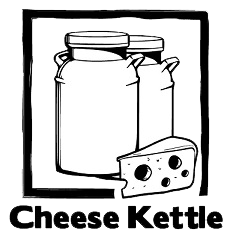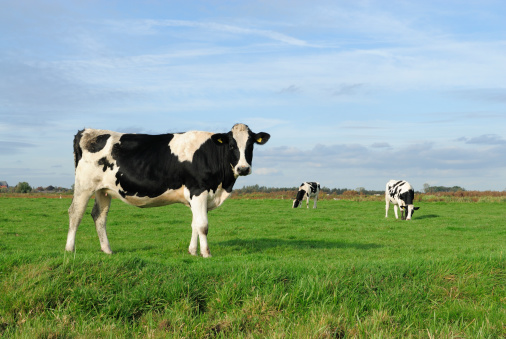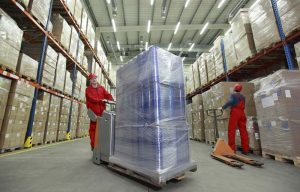Many dairy farmers are feeling uncertain about the profit they can generate from their produce, especially with the fluctuating price of raw milk in the market. To achieve larger profits in an open and competitive dairy market, dairy producers can adopt strategies that add value to milk. Organic food is increasing in popularity nowadays and consumers are willing to pay a little more than the average price for healthier food options. This drive towards eating healthy has created a high market potential for locally produced, high-quality dairy products.
Adding Value to Milk
As a dairy farmer, you can add value to your milk by processing it to become farm bottled milk, cheese, yogurt, ice cream, butter and other dairy products. Gate farm producers are becoming more popular than ever. An industrial study published in the Journal of Agricultural Research revealed that value added products like cheese and yogurt usually generate more profit per liter than liquid milk.
Among value added dairy products, the most popular is cheese. Consumers value cheese because it can be used to add flavor to different dishes and pastries, it is portable and has a longer shelf life than liquid milk. Cheese also comes in different varieties and flavors, making it an exciting food to eat and use as an ingredient. Many cheese makers learned how to make cheese in their own kitchen, and you can do it too. Cheese making ingredients and equipment are accessible and inexpensive.
Starting Your Cheese-Making Business
Cheese-making provides many good opportunities for dairy farmers to increase their exposure to local market and potentially net profit. Below is road map rising important issues that you need to consider before starting your cheese making journey.
 1. Feasibility Study
1. Feasibility Study
Before starting your new cheese making business, it is important to conduct a feasibility study. A good business plan can provide you with an overview of expectations and potential road blocks you may encounter. Here are some key concepts to look into before you venture into cheese-making:
A. Access to Necessary Skills and Knowledge
Cheese-making is a craft that requires knowledge and skills. The good news is that the process of making cheese is not very complicated. Anyone who is willing can learn it. There are many resources available to learn cheese making. You can join short courses, read publications and fact sheets or reach out to industry experts that have years of consulting experience in dairy operations like Cheese Kettle.
B. Raw Materials and Other Resources
If you are starting cheese-making on your farm you will be spoilt with milk. However, be warned raw milk must be pasteurized before cheese making can commence. Dairy farmers work long hours. The question you have to ask is would you need to hire additional workers? Can your partner or family member help? Producing large volumes of cheese will also require specialist equipment and you may need to invest in a facility to store your products if you still don’t have one.
C. Target Market
As a farmstead cheese-maker, your primary target market is the people in your local area and small local businesses like IGA’s, hotels, restaurants, pubs and food outlets. It is essential to know who and how many of them will be interested in your product. You need to understand your potential customers’ values, needs, economic status, buying behavior and what these customers have in common. A sample of a product you wish to make will go long way with any potential client of yours.
D. Market Demands
It is important to make a realistic projection of the demand for your product in your area. Also, identify your competition. Are there large manufacturing businesses that offer various kinds of cheese and other local small-scale cheese making businesses in your area? Evaluate whether there will be sufficient market demand for the kind of cheese that you wish to produce.
 2. Production and Associated Costs
2. Production and Associated Costs
The steps involved in cheese making are relatively simple and easy to follow, and with the right equipment, you are well on your way to producing high-quality cheese. As early as the 1950’s, dairy producers saw great value in the processing and selling of yoghurt and cheeses. Cheese cultures in cheese-making are affordable, making the numbers from the profit seem very attractive, but you have to keep in mind that there are other costs associated with cheese production. Examining the operation, distribution, equipment, storage, labor and other variable costs.
To help in projecting profit, we’ve listed some basic expenses that you can incur in cheese production in this downloadable excel file where you can input estimated/actual costs.
 3. Distinguishing Your Cheese Product and Customer Service
3. Distinguishing Your Cheese Product and Customer Service
Several factors affect the kind of cheese you produce. Quality and kind of milk (goat, cows, sheep) produced on your farm, where are you located (how far you are from a large city), and your preferences. Whatever kind of cheese you decide to focus on, it is necessary to make high-quality cheese products that stand out in the market. You can do this by distinguishing your product from what it is in the market. Here are some ways to attract customers and rise above the competition.
Give your cheese distinctive flavors and appearance. You can add Australian native herbs and spices to produce a unique flavour.
Organic certification is a big draw too. This can ensure regular purchase and loyalty from health conscious consumers.
Inform your customers about the health benefits of your products.
If you are planning to supply cheese to small businesses, go an extra mile in terms of customer service. Offer fast turnaround times for orders, free delivery and other favourable trade terms. This may just land you a business contract with other entrepreneurs.
4. Marketing and Distribution
Promoting Your Products
Marketing is the lifeblood of any business. Make sure the people and businesses in your area know about your products. Branding is very important especially if you are just starting. Have an in-depth knowledge of the cheese making process and your cheese products so you can provide valuable information about the special characteristics of the product that you offer. Artisan techniques, organic and animal friendly production processes and social entrepreneurship are practices that appeal to some customers. You can also create a website for your cheese products and promote it on social media.
Selling and Distribution Outlets
You can choose to either wholesale or retail your cheese products. Farmer markets are a great starting point. Supplying cheese to hotels, restaurants and other small businesses in need of cheese ensures repeat purchases. You can also distribute it to independent retailers and local groceries. Another way is to establish an in-farm store. This has been popular selling method for many European-based farmers.
Adding value to milk is a great way to add to your dairy farm’s income. It also promotes your farm and opens up opportunities for market expansion; but before you venture into any new enterprise, planning is needed to ensure the success of your business.
Cheese Kettle offers consultancy and supplies dairy equipment including cheese starters, cheese kettles, milks cooling vats, wrapping paper, cheese hoops, cheese and butter processing machines and much more. Feel free to call us 02 4934 9363 or visit website www.cheesekettle.com.au


